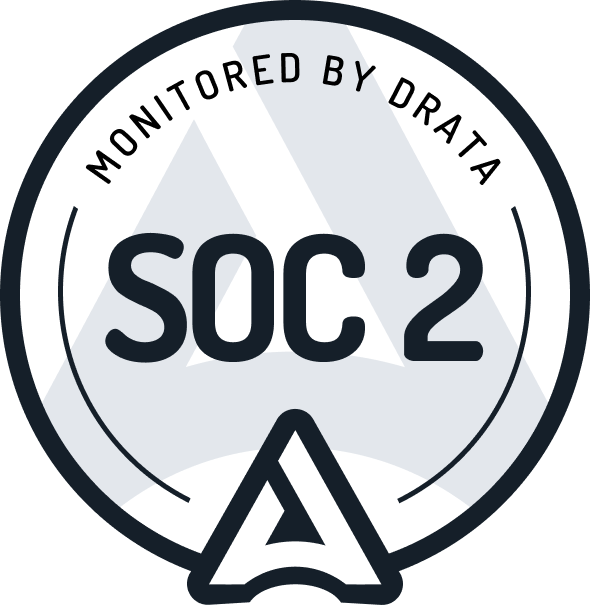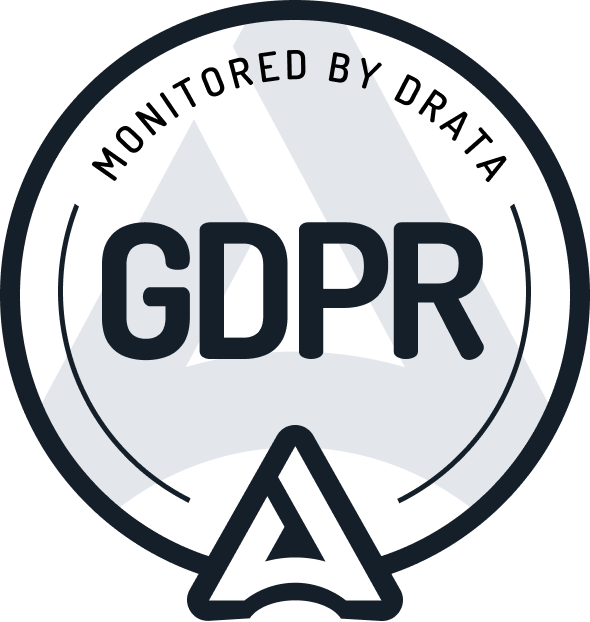.png)
The Best CRM for DevTool Companies - HubSpot vs Salesforce vs Pipedrive
Get notified when customers mention you online - with Crowdlens
As a company targeting a developer audience, choosing the right Customer Relationship Management (CRM) tool is crucial for managing relationships, tracking leads, and driving sales.
In this blog post, we will compare three top CRMs for companies with a developer audience: HubSpot, Salesforce, and Pipedrive. We'll provide an overview of each platform, discuss the pros and cons, and evaluate their strengths and weaknesses based on the requirements listed above.
What is a CRM, and when do you need one?
A Customer Relationship Management (CRM) system is a tool that helps businesses manage their interactions with customers and potential customers. It enables companies to track leads, prospects, and customer information, streamline sales and marketing efforts, and analyze performance data. A CRM is crucial when you want to build and maintain strong relationships with your customers, improve sales efficiency, and drive growth.
What specific CRM requirements do DevTool companies have?
To accommodate the specific needs of developer-centric companies, CRMs should possess the following key features:
Robust API and integration capabilities: CRMs should offer powerful APIs and seamless integration with popular developer tools, platforms, and third-party applications to facilitate efficient workflows and collaboration. Integration with Developer Community Data (e.g. via crowd.dev) is available for HubSpot and Salesforce, providing an added advantage synching community with customer data.
Scalability: As your company grows, your CRM should be able to accommodate an increasing number of contacts, leads, and deals without sacrificing performance. Especially DevTool companies often have tens of thousands of contacts early on.
Collaboration tools: CRMs should offer built-in collaboration features, such as team chat, shared calendars, and task management, to foster teamwork and improve communication among team members.
Automation: Developer-focused CRMs should include automation features to streamline repetitive tasks, such as lead nurturing, follow-ups, and data entry, allowing GTM teams to focus on more critical tasks.
Advanced analytics and reporting: CRMs should provide detailed insights and reporting tools to help you analyze your developer audience's behavior, preferences, and engagement patterns to optimize marketing and sales strategies.
Security and data privacy: With sensitive customer data at stake, it's crucial to choose a CRM that prioritizes data security and privacy, ensuring compliance with data protection regulations and industry standards.
Cost-effectiveness: Lastly, the CRM should offer a competitive pricing structure that aligns with your company's budget and delivers value for money.
In this blog post, we will compare the top CRMs for DevTool companies, evaluating their strengths and weaknesses based on the requirements listed above.
HubSpot for DevTools
What is HubSpot?
HubSpot is an all-in-one inbound marketing, sales, and customer service platform that offers a powerful CRM system designed to help businesses of all sizes manage customer relationships, track leads, and drive sales. With its user-friendly interface and a range of marketing, sales, and service tools, HubSpot is well-suited for companies targeting a developer audience.
Pros of using HubSpot for DevTools
- Extensive API and seamless integration: HubSpot offers a robust API and integrates easily with almost all popular tools and platforms, including crowd.dev for Developer Community Data.
- Collaboration tools: HubSpot provides built-in features like team chat, shared calendars, and task management, fostering teamwork and improving communication among team members.
- Automation capabilities: HubSpot's CRM includes automation features that streamline repetitive tasks, allowing developers to focus on more critical tasks.
- Advanced analytics and reporting: HubSpot offers detailed insights and reporting tools to help analyze developer audience behavior, preferences, and engagement patterns, optimizing marketing and sales strategies.
- Security and data privacy: HubSpot prioritizes data security and privacy, ensuring compliance with data protection regulations and industry standards.
- Cost-effectiveness: HubSpot's CRM offers a competitive pricing structure, including a free plan with essential features for small businesses and startups.
Cons of using HubSpot for DevTools
- Limited scalability: While HubSpot can handle the needs of small to medium-sized businesses, it might not scale as effectively for large enterprises with complex requirements.
- Learning curve: Although HubSpot is user-friendly, it still requires some time and effort to learn and master all its features, particularly for users who are new to CRM systems.
- Add-on costs: While HubSpot offers a free plan, advanced features and higher-tier plans can become expensive for some businesses, especially when purchasing add-ons for marketing, sales, or service hubs.
Salesforce for DevTools
What is Salesforce?
Salesforce is a leading cloud-based CRM platform that helps businesses manage customer relationships, track leads, and drive sales. With a range of customizable tools and features, Salesforce caters to businesses of all sizes, including those targeting a developer audience.
Pros of using Salesforce for DevTools
- Powerful API and integration capabilities: Salesforce provides a robust API, allowing for seamless integration with numerous third-party applications.
- Scalability: Salesforce is highly scalable, making it suitable for businesses of all sizes, from startups to large enterprises.
- Collaboration tools: Salesforce offers built-in collaboration features like Chatter, shared calendars, and task management, promoting teamwork and improving communication among team members.
- Automation: Salesforce includes automation features, such as Process Builder and Workflow, to streamline repetitive tasks and improve overall efficiency.
- Advanced analytics and reporting: With Salesforce's Einstein Analytics, users can gain detailed insights and reporting tools to analyze developer audience behavior, preferences, and engagement patterns for optimized marketing and sales strategies.
- Security and data privacy: Salesforce is known for its focus on data security and privacy, ensuring compliance with data protection regulations and industry standards.
Cons of using Salesforce for DevTools
- Complexity and learning curve: Salesforce is a powerful platform, but its complexity can be overwhelming, particularly for new users, resulting in a steep learning curve.
- High costs: Salesforce's pricing can be expensive for small businesses and startups, especially when considering the costs of additional features and customizations.
Pipedrive for DevTools
What is Pipedrive?
Pipedrive is a sales-focused CRM designed to help businesses manage leads, track deals, and improve sales processes. With its visual pipeline interface and intuitive design, Pipedrive is ideal for small to medium-sized businesses, including those targeting a developer audience.
Pros of using Pipedrive for DevTools
- Ease of use: Pipedrive's user-friendly interface and visual pipeline make it easy to navigate and manage customer relationships, even for users who are new to CRM systems.
- API and integration: Pipedrive offers a solid API and integration with popular developer tools and platforms, although it doesn't currently support crowd.dev for Developer Community Data.
- Collaboration tools: Pipedrive provides built-in collaboration features, such as team chat, shared calendars, and task management, fostering teamwork and improving communication among team members.
- Automation: Pipedrive includes automation features to streamline repetitive tasks and improve overall efficiency.
- Cost-effectiveness: Pipedrive offers a competitive pricing structure, making it an affordable option for small businesses and startups.
Cons of using Pipedrive for DevTools
- Limited scalability: While Pipedrive is suitable for small to medium-sized businesses, it might not scale as effectively for large enterprises with complex requirements.
- No integration with crowd.dev: Pipedrive currently doesn't support integration with crowd.dev for Developer Community Data, which could be a drawback for companies targeting developers.
- Less advanced analytics and reporting: Pipedrive's analytics and reporting tools are not as advanced as those offered by HubSpot and Salesforce, which could limit the depth of insights available for optimizing marketing and sales strategies.
HubSpot emerges as a slightly preferred option for DevTool companies
In summary, HubSpot, Salesforce, and Pipedrive are all powerful CRM platforms that cater to companies targeting a developer audience. Each platform has its strengths and weaknesses, and making the best choice depends on your company's specific requirements and priorities.
HubSpot stands out for its user-friendly interface, extensive API, seamless integration with developer tools and crowd.dev, as well as its cost-effectiveness with a free plan available. However, it may face limitations in scalability for larger enterprises.
Salesforce offers a robust API, seamless integrations, and is highly scalable, making it suitable for businesses of all sizes. However, its complexity and higher costs can be drawbacks, particularly for small businesses and startups.
Pipedrive is a user-friendly CRM platform with a visual pipeline interface and solid API capabilities. While it doesn't currently support crowd.dev integration, it remains a cost-effective option for small to medium-sized businesses. The platform's scalability and analytics features, however, may not be as robust as those offered by HubSpot and Salesforce.
Considering the trade-off between scalability and usability, HubSpot emerges as the slightly better option for companies targeting developers, especially for small to medium-sized businesses. However, it's essential to assess your specific needs and objectives before making a final call on which CRM platform to choose.
Get insights to your inbox.
Once per month. No spam.

.png)





